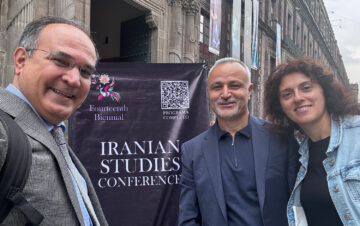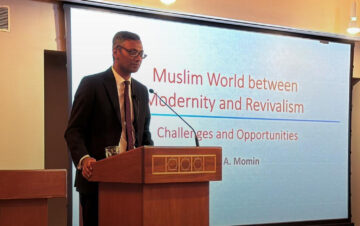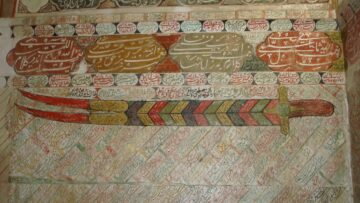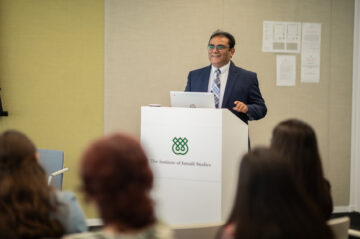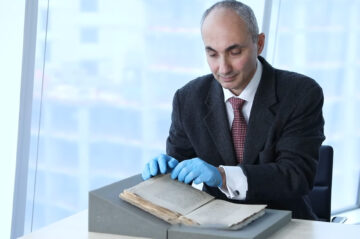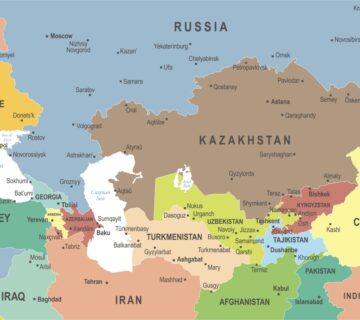Professor John Schoeberlein gave a lecture on the Conceptual Challenges for the Study of Post-Soviet Islam at the IIS on 7 May 2009. Professor Schoeberlein is currently the Director for the Program on Central Asia and the Caucasus at Harvard University and has been studying and visiting Central Asia for over 20 years.
In his introductory remarks, Dr Najam Abbas, an IIS Research Fellow in the Central Asian Studies Unit, spoke of the desire to clarify the enormous information flow about Central Asian Islam in order to promote better understanding of Muslims in that region of the world. The conceptual challenges for the study of post-Soviet Islam are intrinsically linked to the study of Islam in Central Asia during the Soviet period. This was dominated by a scholarly discourse which saw Islam as a purely political actor, placed in opposition to the Soviet worldview. This conceptual framework was true both for Soviet and Western scholars, the former saw Islam as a “problem to be neutralised as a social and political mobilising force, if not eliminated altogether.” Western scholars during the Soviet era, however, believed that Islam was a “good political problem” as it was seen to challenge the Soviet state.
In his presentation, Professor Schoeberlein noted that, while there are regional differences between countries, there are stronger similarities which permit him to attempt a meaningful analysis of Central Asian Islam as a whole. Where primary fieldwork took place in Soviet Central Asia, often wide-ranging conclusions were based on very slight evidence. Professor Schoeberlein used the example of Sergei Poliyakov’s statement that “Central Asian mosques were powerful institutions which controlled every section of society”, when the only basis for his evidence was that the mosques owned massive cauldrons which were used to feed community members.
Professor Schoeberlein showed how certain axioms have been repeated thoughtlessly by generations of scholars with regards to Central Asia. This includes the Central Asian nomads being seen as ‘less Islamic’ than the settled peoples. Nomads were not seen as serious Muslims, as they had no mosques to pray in, forgetting, of course, that both the early Arabs and the Bedouins were nomadic tribes.
The conceptual legacy of these positions in post-Soviet times has continued to direct scholarly discourse. Islam is seen as working either to sustain political pluralism, or to destabilise friendly regimes, often purely depending on the scholar’s viewpoint. The scholarly analysis of the relationship between Islam and the state remains problematic. However, this differs from the view from the ground. Professor Schoeberlein shows that there were many Muslims in Central Asia whose adherence to Islam was not connected to defiance to the Soviet state. This is equally true today: Central Asian Muslims do not necessarily conceptualise their faith in political terms.
This lecture was second in the 2009 DARP Occasional Lecture series, the first presentation being The DruzeA religious community that arose as an offshoot of the Fatimid Ismailis around 408 AH/1017 CE. ‘Epistles of Wisdom’ and Early Ismailism: A ‘neo-carmathian’ revolt against the FatimidsMajor Muslim dynasty of Ismaili caliphs in North Africa (from 909) and later in Egypt (973–1171) More? by Professor Daniel de Smet, from the Institute of Philosophy, Katholieke Universiteit, Leuven.

